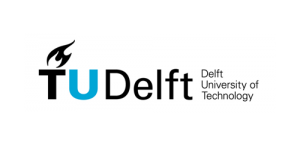february, 2020
Time
(Tuesday) 12:30 - 14:30
Location
Members' Salon, European Parliament, Brussels
Event Details
Understanding life by building a cell from its basic molecular components is currently one of the hottest topics in science and technology. During this lunch event leading European politicians, European
Event Details
Understanding life by building a cell from its basic molecular components is currently one of the hottest topics in science and technology.
During this lunch event leading European politicians, European Commission policy makers, industry experts and researchers will exchange viewpoints – and come to recommendations – on synthetic cell research in Europe and its potential for European technology and society.
The objective of this event is to reach out and engage in a dialogue with prominent Members of the European Parliament as well as policy makers of the European Commission.
Speakers for this event
-
Baret, Jean-Christophe
Baret, Jean-Christophe
Professor and Research Group Leaderm Univ. Bordeaux, CNRS & IUF
Jean-Christophe Baret obtained his PhD from the University of Twente (NL) in 2005. After a post-doc at ISIS, Strasbourg (F), the institute of J.M. Lehn, he joined the Max Planck Institute for Dynamics and Self-Organization in Goettingen (D) as an independent group leader. In 2013 he obtained an ERC Starting Grant to develop new microfluidic tools for micro-compartmentalization. He joined the University of Bordeaux (F) as a full professor in 2014 and was appointed Junior Member of the Institut Universitaire de France in 2016. He is the laureate of an ERC Proof of Concept grant which led to the creation of the company Emulseo launched in 2018. Emulseo develops formulations for industrial applications of the droplet-based microfluidics technology. He is a recognized expert in microfluidics, serving as Editor of Microfluidics and Nanofluidics (Springer-Nature) and as Advisory Board Member of Lab on a Chip (RSC). His research activities now focus on microfluidics for bottom-up synthetic biology and he currently coordinates the build-up of the new Research Program Frontiers of Life at the Univ. Bordeaux which regroups local activities in the fields related to synthetic biology from molecules to regenerative medicine.
Professor and Research Group Leaderm Univ. Bordeaux, CNRS & IUF
-
Pontani, Léa-Lætitia
Pontani, Léa-Lætitia
Research Scientist, CNRS, Jean Perrin Laboratory, Sorbonne University, Paris
Lea-Laetitia Pontani is interested in studying the mechanical properties of cells and tissues in simplified biomimetic frameworks. For instance, during her PhD in the group of Dr. Cécile Sykes at the Curie Institute, she built and characterized a biomimetic system of the actin cytoskeleton in vitro. For her post-doc she joined the group of Jasna Brujic within the Center for Soft Matter Research at New York University. She first investigated the physics of jammed matter through confocal imaging of dense emulsions and then designed biomimetic emulsions that mimic multicellular assemblies such as biological tissues. Eventually, these biomimetic emulsions became a widely used platform in the center and are now used for various purposes, such as directed self-assembly of DNA functionalized emulsions. For her research at the Jean Perrin Laboratory she seeks to understand the physical basis of collective remodeling in biological tissues by studying the response of these biomimetic emulsions under mechanical constraints. She also studies mechanosensitive pathways in tissues at the microscopic level by developing biomimetic mechanosensitive cells and tissues. In these systems she studies the propagation of molecular probes and resulting patterning as a function of the applied mechanical forces.
Research Scientist, CNRS, Jean Perrin Laboratory, Sorbonne University, Paris
-
Schwille, Petra
Schwille, Petra
Director, Max Planck Institute of Biochemistry
Petra Schwille studied physics in Stuttgart and Göttingen and obtained her PhD in 1996 with Nobel Laureate Manfred Eigen at the MPI for Biophysical Chemistry in Göttingen, Germany. After a postdoctoral stay at Cornell University (Ithaca, USA) she established a research group at the MPI Göttingen in 1999 and accepted a call as professor and chair of biophysics at the BIOTEC of the TU Dresden in 2002. In 2011, she was appointed as scientific member of the Max Planck Society and director at the MPI of Biochemistry, Martinsried. Her research interests range from single-molecule biophysics to bottom-up synthetic biology of artificial cells.
Director, Max Planck Institute of Biochemistry
-
Thole, Esther
Thole, Esther
Science journalist and writer
Author of Creators of Life (original NL: Makers van Leven), Maven Publishing (2018). In her book, editor Esther Thole describes how scientists build structures on the nano-scale towards hierarchically ordered materials or building blocks for life.
Science journalist and writer
Speakers
Moderator
Esther Thole, Freelance Science Writer & Editor Chemistry/Functional Molecular Systems at NEMO Kennislink
Speakers
Jean-Eric Paquet, Director General, DGCNECT, European Commission (tbc)
Ingrid van Engelshoven, Minister Education, Culture and Science of The Netherlands (tbc)
Dr. Marileen Dogterom, Full Professor, TU Delft, Faculty of Applied Sciences, Chair of the Department of Bionanoscience, ERC Synergy Grant Laureate, Delft, the Netherlands
Dr. Petra Schwille, Full Professor, Max Planck Institute of Biochemistry, Dept. Cellular and Molecular Biophysics, Martinsried, Germany
Jean-Christophe Baret, Professor and Research Group Leaderm Univ. Bordeaux, CNRS & IUF
Dr. Léa-Lætitia Pontani, Research Scientist, CNRS, Jean Perrin Laboratory, Sorbonne University, Paris
Charlotte Koster MSc., TU Delft, BaSyC Consortium researcher

